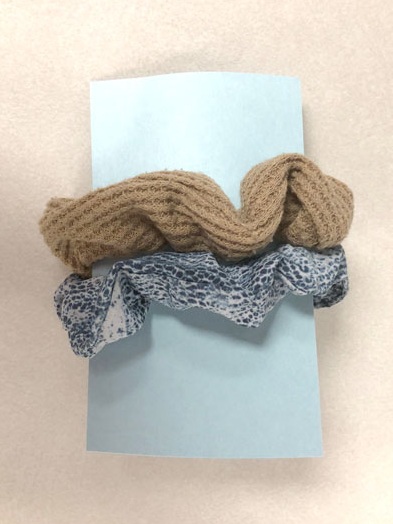Webster Groves High School
Overview: Webster Groves High School is located twenty minutes southwest of St. Louis. Jacob, a senior, who plays baseball and is in an entrepreneurship class; is the lead Spirit Box manager at his school. He’s been managing the Spirit Box since his sophomore year with help from his classmates.
Ranking: Top 6 Performing Spirit Box this school year.
Program Length: 2.5 years
We interviewed Jacob, the Spirit Box manager and here’s what he had to say:
Spirit Box: What challenges or needs did you face that led you to look for a solution like Spirit Box?
Jacob, Student Spirit Box Manager:
Challenge 1: Staffing the school store
When we used to have school store, kids would have to miss class to work at the school store; which is not ideal. With the Spirit Box, we can stock it during our free period or during our marketing class and it doesn’t require on-going staffing needs.Challenge 2: Handling money, inventory and limited availability
Our advisor was worried about students handling money and inventory in the middle of the busy cafeteria during lunch every day. It was also time consuming for both the students and our advisor since she supervised the school store and had classes to teach before and after lunch. The Spirit Box is locked, and money is secure, so our advisor now has peace-of-mind when it comes to accessing the money and keeping track of inventory. Bonus, the Spirit Box doesn’t require as much time for her to maintain either and the students run and manage the day-to-day in a less stressful environment on their schedule.Challenge 3: District snack mandate (couldn’t sell sweet treats)
Our school store cannot sell candy and snacks during school hours. The Spirit Box allows us to set limited selling times for each tray or coil so we can offer snacks outside of school hours and not break this mandate. Check out this video on how to do that: https://youtu.be/I87YojwwMYI
Spirit Box: What product mix do you stock your Spirit Box with and which sells the best?
Jacob, Student Spirit Box Manager: Cheese-its, fruit snacks and rice crispy treats are our biggest sellers. Snacks give exposure to other items like earbuds, wireless earbuds (BIG SELLER), headphone adapters, charging cables, deodorant, phone wallets or other items we sell seasonally.
Spirit Box: How do you go about finding new products?
Jacob, Student Spirit Box Manager: We ask around to see what people want and conduct student surveys. Then we buy a small amount and test products to see how it is received and how fast they sell before we buy a larger amount.
Spirit Box: How do you go about pricing your products?
Jacob, Student Spirit Box Manager: The marketing team is assigned a pricing project. With this project each team chooses a different product. Team 1 chose headphones and adapters, team 2 chose coffee mugs and team 3 chose scrunchies. The team picks the price and markets it. This usually includes some form of research to see what they are selling for retail or what students would be willing to pay given the convenience. Scrunchies made the highest profit of $450 so that’s the product we’re going to continue stocking.
Team 3 tested which scrunchie colors would sell best. They bought a small number of three different color options: cool colors (black and gray), warm colors and school colors. They came in packs of 36 so they had to hand pack with index card and insert into a poly bag so they would dispense properly. They packaged two scrunchies in a pack and sold for $3/pack. Our cost was $0.44 per scrunchie or $0.88/pack, so profit was $2.12/pack.
Team 2 sold custom coffee tumblers. The blank tumbler cost $3.70 each and they sold for $17 each. So, while it had a pretty high profit, we sold less because of the higher priced item, plus it required labor to customize. We have a maker space where the students engraved cups with turtles and personalized monograms. Students could order a tumbler by filling out a form. The team’s selling strategy was to donate a portion of the proceeds to a foundation and they promoted it via their social media channels.
Spirit Box: How much do you mark up products in your Spirit Box?
Jacob, Student Spirit Box Manager: Anywhere from 50-79%.
Spirit Box: Has the Spirit Box been profitable?
Jacob, Student Spirit Box Manager: YES! We typically profit anywhere between $750-800 per month on average. Just in January we made $263 on Chees-Its, $245 on Fruit Snacks, $133 on Rice Crispy Treats, and $25 on Ear buds.
Spirit Box: What is your annual profit?
Jacob, Student Spirit Box Manager: We set goals each year and have already surpassed that goal this year – making $4,000 in profit through the Spirit Box year to date. We doubled this year what we did last year and we still have three months of school left. After the year’s over, we will evaluate what has worked and what hasn’t and plan for the next year.
Spirit Box: How do you currently promote the spirit box?
Jacob, Student Spirit Box Manager: The marketing team promotes it. We also put the Spirit Box in a high traffic area and try to promote it by word-of-mouth. Plus, if you have the right product mix and keep it stocked people will purchase from it. The student body is a huge supporter. They help provide new ideas.
Spirit Box: What challenges have you come across with the Spirit Box?
Jacob, Student Spirit Box Manager: Running out of dollar coins or not having them stocked. The machine requires dollar coins in order to take cash because without dollar coins it cannot dispense change for larger dollar purchases. So every two weeks we automatically fill the machine. We stock it every day and check the dollar coin levels every week. We also have a school “bank” that we order dollar coins from ahead of time. We’re never sure how fast they will go, so we order extra every two weeks.
Spirit Box: How do you handle and respond to customer issues with the machine?
Jacob, Student Spirit Box Manager: My email is posted on the machine so they can send me a request for a refund or alert us about any issues. We respond pretty quickly and make sure they get taken care of. We want to make sure those who are purchasing are happy. If they do not like the product or it does not work, they can return it.
Spirit Box: Do you feel like you’ve learned or the students have learned aspects of running a business?
Jacob, Student Spirit Box Manager: Yes, the biggest thing I have learned is the importance of consistency stocking the machine and making sure it’s always filled. We’ve learned how to manage inventory and keep a backup supply on-hand. Our activities director runs to Sam’s Club with list of inventory we need every two weeks or so and we order other items from schoolstoreproducts.com which delivers pretty quickly.
Spirit Box: What has Spirit Box taught your school?
Jacob, Student Spirit Box Manager: It demonstrates the opportunity we have to try new ideas and make money to the rest of the student body. Instead of spending a week talking about it, we take action. We talk and plan for a day and then spend the rest of the week doing something to find out what the target market is, or whether a product will sell.
Spirit Box: Why did you take on the Spirit Box as your project?
Jacob, Student Spirit Box Manager: I thought it would be cool to run a business and the Spirit Box was getting a lot of attention since it was new to our school.
Spirit Box: What is your transition plan for next year since you’ll be graduating?
Jacob, Student Spirit Box Manager: We’re still working through the details, but we’re planning on implementing an entrepreneurship incubator called THRIVE. It would meet off campus 3 hours per day will help support. We’re hoping it will be more of a team effort to manage it next year, rather than one manager.
Spirit Box: What does an ideal Spirit Box dream-team look like?
Jacob, Student Spirit Box Manager: No more than 7 students, preferably that each think differently and different skillsets. Ideally, there would be one manager overseeing a team of five. The other team members will help find products, handle product pricing, help promote it (writer, designer) and package and stock inventory. The pros to having a singular manager means they would have an understanding of the big picture, oversee the project and know what is going on.
Spirit Box: What’s your advisor’s role?
Jacob, Student Spirit Box Manager: Our advisor is very supportive of new ideas. She’s always like, “let’s do it!”
Spirit Box: Have you taken the Spirit Box to DECA competition?
Jacob, Student Spirit Box Manager: Yes, we were first in district last year. There were three other Spirit Box presentations in Missouri and one of the other teams won. If you do it right, the DECA competition advisors love to see profit earned and what the students have learned. Not very many of the contestants have real-life businesses to present.
Spirit Box: How did you fund the Spirit Box program, and how do you plan to fund it in the future?
Jacob, Student Spirit Box Manager: We sold school branded hats initially then we started hosting 5-6 events per year to help raise additional funds. Events like: Mr. Webster Beauty Pageant ($2000+), Breakfast with Santa and our Marketing class pricing project ($1,200 in February alone).
Spirit Box: What advice would you give other schools running a Spirit Box?
Jacob, Student Spirit Box Manager: It's really easy to let the machine run down. Consistently stock it and plan accordingly. Check dollar coin levels and make sure inventory is stocked or your customers will quickly learn they cannot rely on it and that’s a bad customer experience that will quickly hurt sales. Pick a responsible group of students who will follow through: respond to emails, make time to plan, stock and managing it as a business. Some students don’t want the responsibility of it. It is important to find balance and remember you don’t have to be the only student taking it on.
Spirit Box: What would you tell others who might be considering a Spirit Box? Would you recommend the Spirit Box to other advisors?
Jacob, Student Spirit Box Manager: It’s a great experience where you’ll get the opportunity to really understand what it’s like to run a business–see what it’s like and what’s important. You learn how to deal with customers, how to budget, and how to manage inventory. There are times when it’s not easy and times when you do mess up, but overcoming those mistakes are important and you’ll learn from them.
____
Be sure to check back or follow us on Twitter, Instagram or Facebook for more stories like these.






